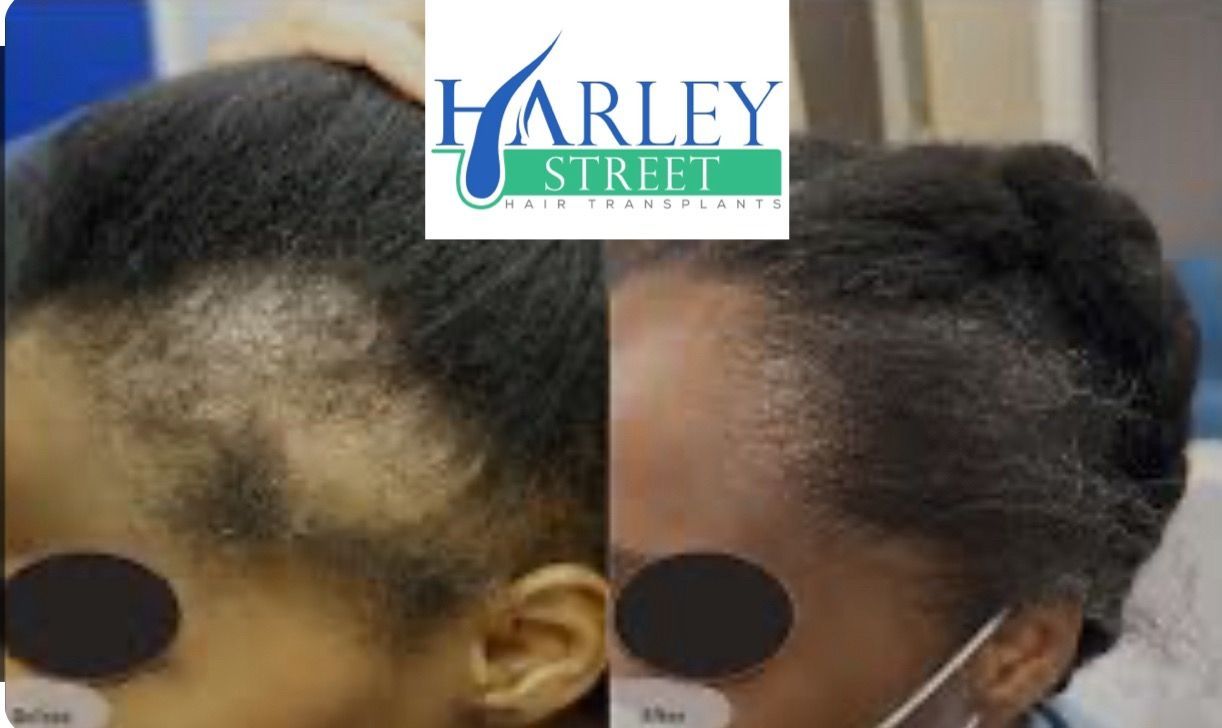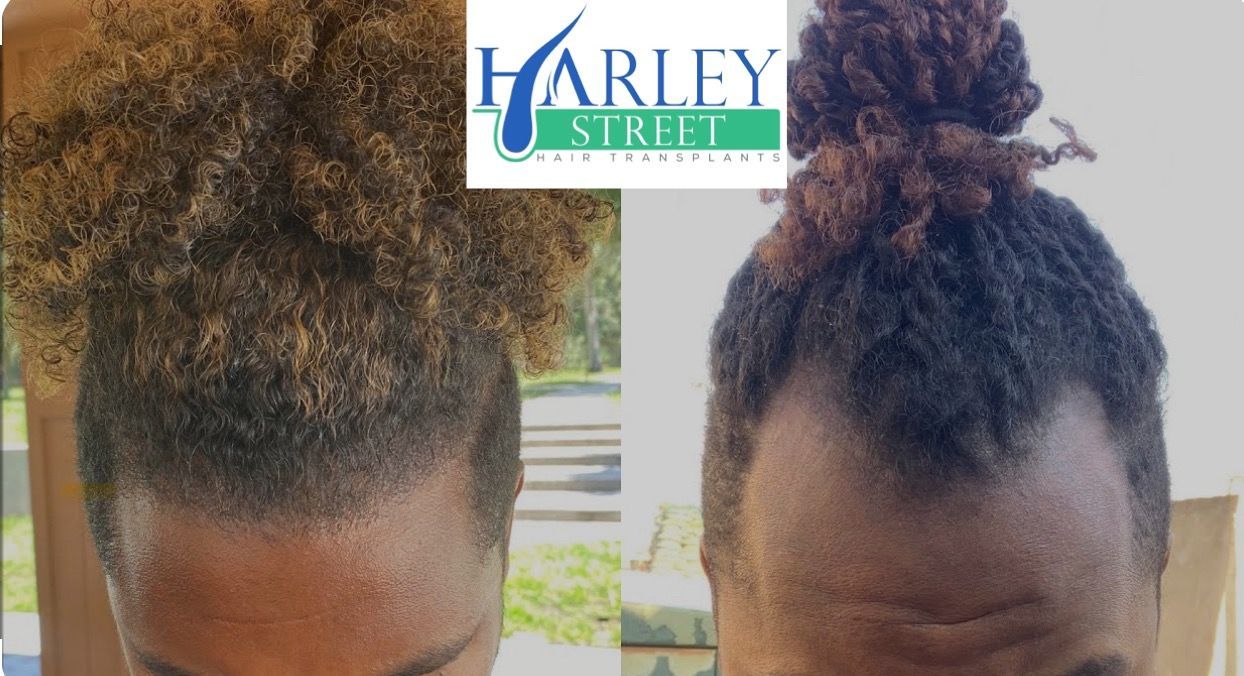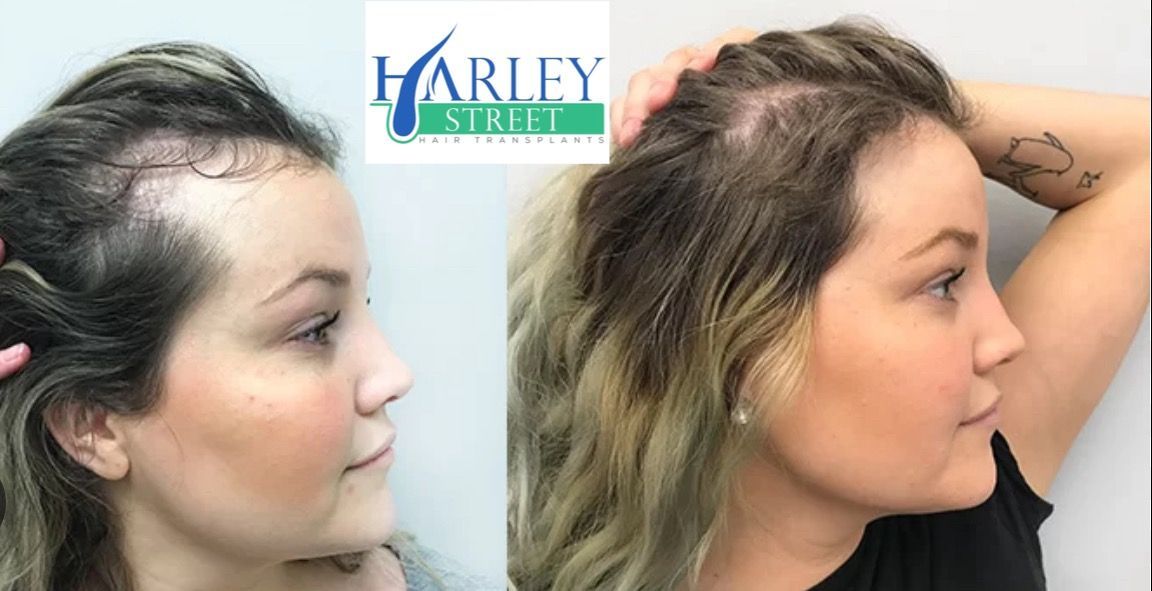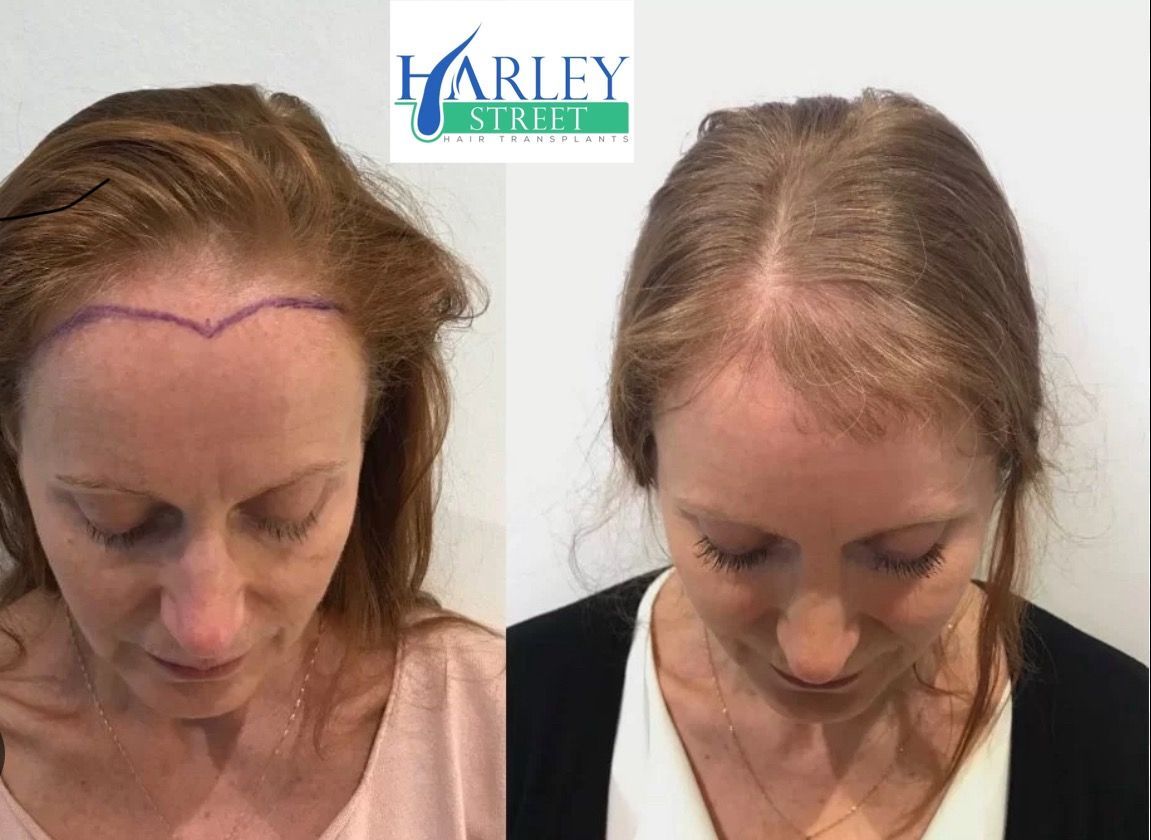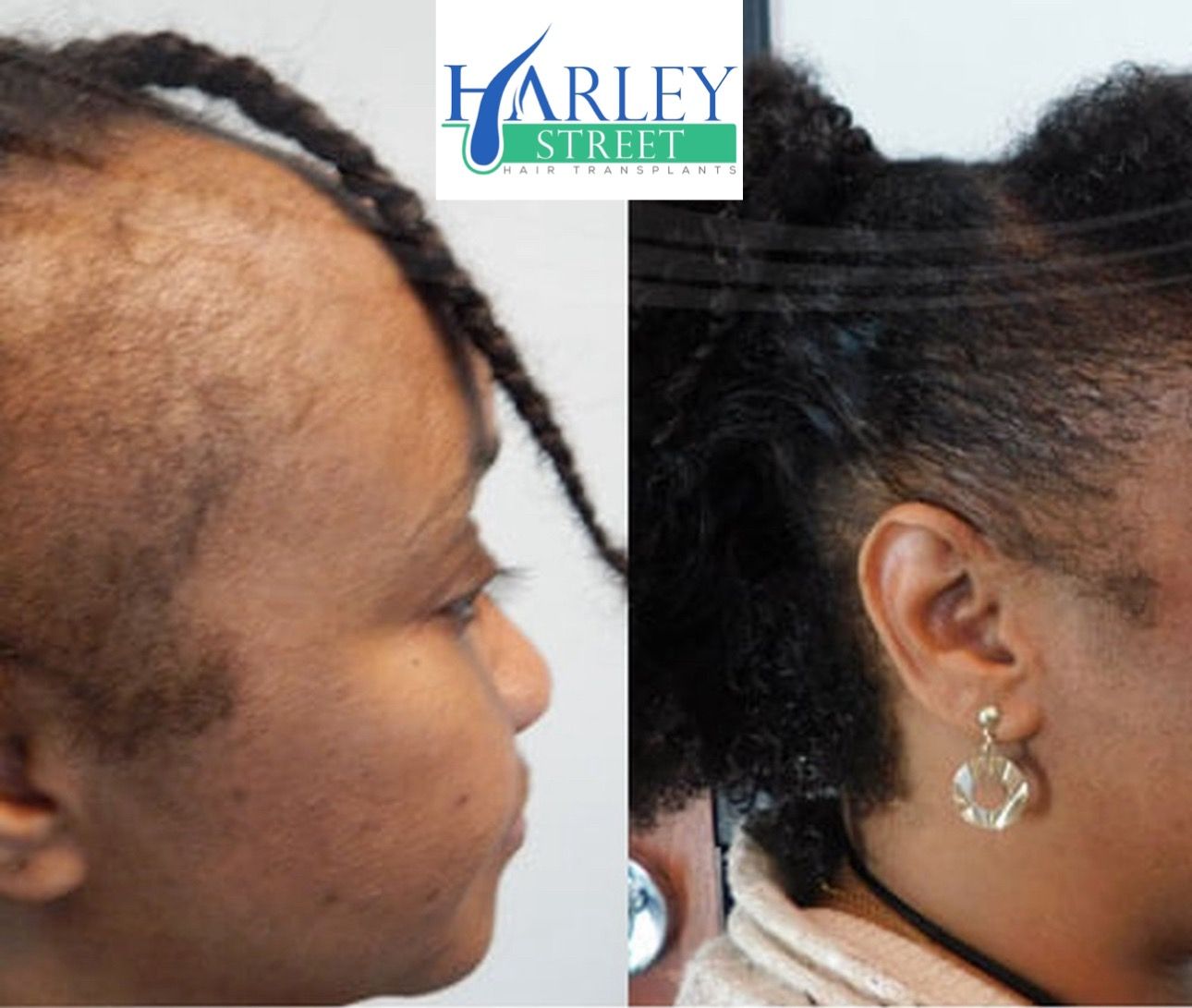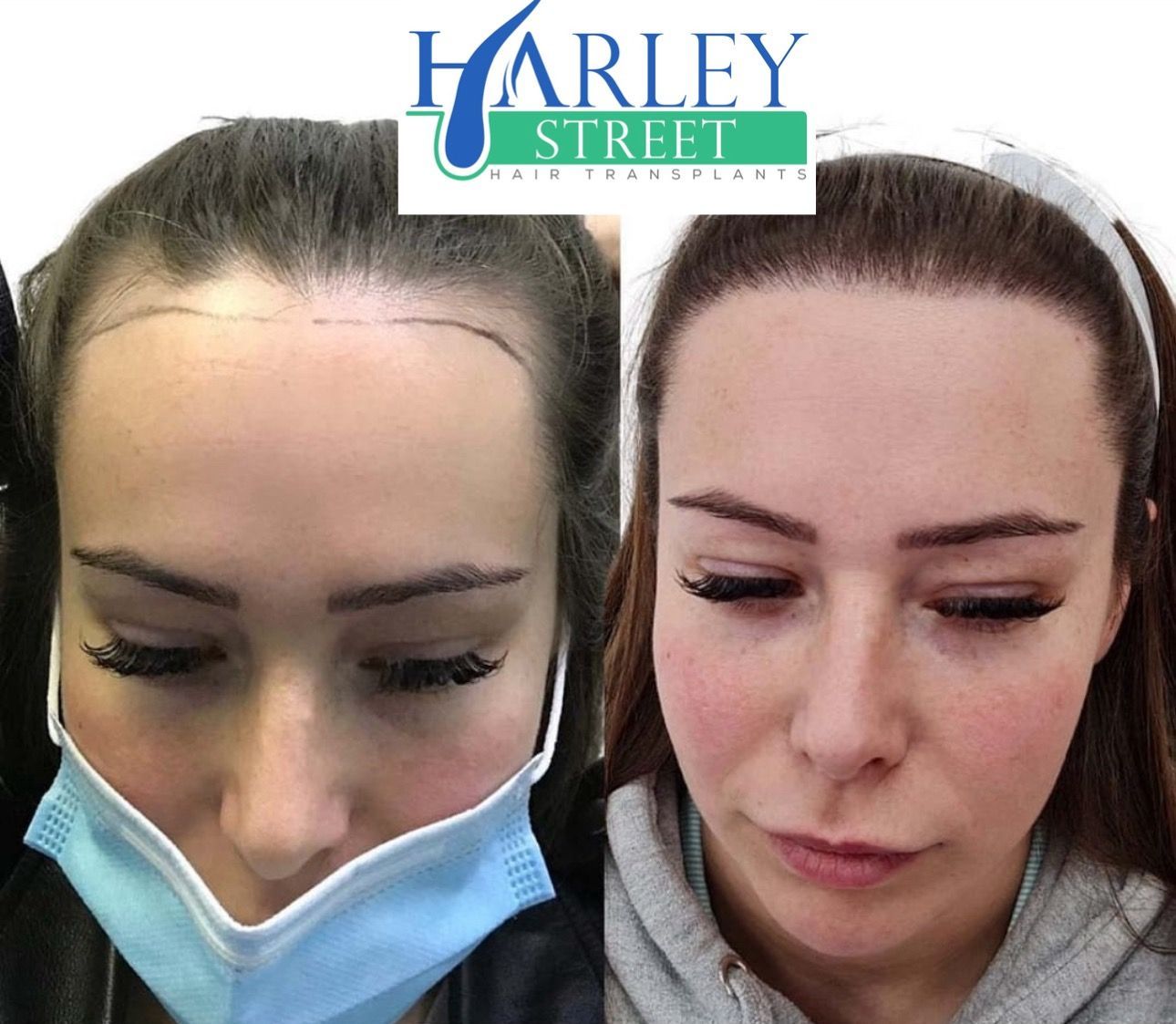Female Hair Transplants in Liverpool
Hair loss and thinning can be a frustrating and emotional experience for women, impacting their confidence and self-esteem. At Harley Street Hair Transplant Liverpool, we understand the unique challenges that women face when it comes to hair loss, and we offer specialised hair restoration treatments tailored to meet the individual needs of our female clients.
Our experienced hair transplant surgeons have helped countless women restore their hair to its natural, healthy state, using the latest techniques and technologies in hair restoration. Whether you're experiencing hair loss due to genetics, hormonal changes, or other factors, we can help you find a solution that meets your needs and gives you the full, natural-looking hair you desire.
Female hair transplants are a popular and effective option for women who are experiencing hair loss or thinning. There are several factors that can contribute to female hair loss, including genetics, hormonal changes, medical conditions, and environmental factors. Our hair transplant surgery can help restore hair density and improve the overall appearance of the hair.
During a female hair transplant procedure, hair follicles are harvested from the donor area of the scalp, typically the back or sides of the head, and transplanted to the areas of thinning or baldness. The procedure is typically performed using the FUE (Follicular Unit Extraction) method, which involves removing individual hair follicles from the donor area and transplanting them to the recipient area using tiny incisions.
At Harley Street Hair Transplant Liverpool, our female hair transplant surgery can be customised to meet the individual needs and goals of each patient. The procedure can be used to restore hair density to the entire scalp or to target specific areas of thinning or baldness. Additionally, our female hair transplant surgery can be combined with other hair restoration treatments, such as non-surgical hair loss treatments or topical hair growth medications, to maximise the results.
When looking for a clinic to carry out your procedure, it is important to work with a qualified and experienced hair transplant surgeon who has experience performing female hair transplants. Women have unique hair loss patterns and hair characteristics, and it's important to take these factors into account when planning the procedure. Additionally, our surgeons can provide advice on post-operative care and follow-up to ensure the best possible outcome.
If you're a woman who is experiencing hair loss or thinning, a hair transplant may be an effective solution to restore your hair density and confidence. Contact one of our highly experienced hair transplant surgeons at Harley Street Hair Transplant Liverpool to learn more about your options and to schedule a consultation to discuss your goals and expectations.
Our range of female Hair Transplants
FUE
Follicular Unit Extraction (FUE) is a hair transplant technique that can benefit women who are experiencing hair loss or thinning. FUE involves extracting individual hair follicles from the donor area of the scalp and transplanting them to the area of hair loss or thinning. The procedure is minimally invasive and leaves no linear scar, making it an attractive option for women who prefer to wear their hair short. FUE can be used to restore hair density to the entire scalp or to target specific areas of thinning
FUT
Follicular Unit Transplantation (FUT) is a hair transplant technique that can benefit some women who are experiencing hair loss or thinning. FUT involves removing a strip of hair-bearing skin from the donor area of the scalp, and then dividing it into individual follicular units to be transplanted to the area of hair loss or thinning. While FUT can be an effective hair restoration option, it does leave a linear scar that may be visible if the hair is worn short. FUT is often used to restore hair density to larger areas of the scalp, and may be combined with other hair restoration techniques for optimal results.
Non Surgical Hair Loss Treatments
Non Surgical hair restoration treatments can benefit some women who are experiencing hair loss or thinning. This procedure involves injecting a concentrated solution of the patient's own platelets, which contain growth factors that promote hair growth, into the scalp. The treatment can be used to stimulate hair growth in areas of thinning or to improve the overall quality and texture of the hair. Non surgical hair loss treatment is a minimally invasive treatment that typically requires no downtime, and can be used as a standalone treatment or in combination with other hair restoration techniques for optimal results.
Eyebrow Hair Transplants
Eyebrow hair transplants are a procedure that can benefit women who have experienced hair loss or thinning in their eyebrows. The procedure involves transplanting hair follicles from the donor area of the scalp to the eyebrow area, resulting in fuller, more natural-looking eyebrows. Our eyebrow hair transplants are customised to meet the individual needs and goals of each patient, and the results are long-lasting. Working with one of our qualified and experienced hair transplant surgeons is important to ensure the best possible outcome and to minimise the risk of complications.
Afro Hair Transplants
Our hair loss surgeons have experience of working with patients with afro textured hair. Afro hair transplants for females involve transplanting hair follicles from the donor area (typically the back or sides of the scalp) to the recipient area (typically the front or top of the scalp) to improve hair density and restore hair loss. The procedure requires specialised skills and techniques to properly transplant the thick, curly hair characteristic of Afro-textured hair.
Male to Female Transitions
At Harley Street Hair Transplants Liverpool, we also undertake hair transplants for individuals looking to undergo gender reassignment. Hair transplants can be a key component of the male-to-female transition process for transgender women. The procedure involves transplanting hair follicles from the donor area (typically the back or sides of the scalp) to the recipient area (typically the front or top of the scalp) to create a more feminine hairline and improve overall hair density. Hair transplants can be used alone or in combination with other treatments, such as hormone therapy, to achieve a more feminine appearance. Our hair transplant surgeons have experience of working with transgender patients and can create a customised treatment plan that addresses your unique goals and concerns.
Planning for a Hair Transplant?
Planning for a hair transplant is an important step towards achieving your desired look. Before undergoing the procedure, it is important to consult with a qualified hair transplant surgeon to discuss your expectations, assess your suitability for the procedure, and create a personalised treatment plan. Our surgeons will evaluate your hair loss pattern, hair density, and donor area to determine the number of hair grafts needed and the best technique for your individual needs. Additionally, we will provide you with pre-operative instructions, such as avoiding blood-thinning medication and smoking, and post-operative care instructions to ensure a smooth recovery. It is important to follow these instructions carefully to optimise the success of the hair transplant procedure. With careful planning and the guidance of our skilled hair transplant surgeons, you can achieve natural-looking and long-lasting results from your hair transplant procedure.
Book Your
Free Consultation Today
Contact Us
Our range of
Hair Loss Treatments
Patient Care Is Our Leading Priority

Follicular Unit Extraction (FUE)
FUE is a minimally invasive procedure that does not require a large incision or stitches, resulting in minimal scarring and a faster recovery time.

Follicular Unit Transplantation (FUT)
FUT can be an effective hair restoration option for patients with larger areas of baldness or those who require a higher number of grafts.

Non-Surgical Hair Restoration
Our non-surgical hair restoration treatment makes use of the patient's own blood to promote hair growth.

Eyebrow Hair Transplants
Eyebrow hair transplants are a specialised hair restoration procedure that involves transplanting hair follicles from the scalp to the eyebrows.

Beard Hair Transplants
Beard hair transplants are a specialized hair restoration procedure that involves transplanting hair follicles from the scalp or other areas of the body to the beard area.

Female Hair Transplants
Female hair transplants are a specialized hair restoration procedure that involves transplanting hair follicles to the areas of thinning or balding hair in women.
AFFORDABLE FEMALE HAIR TRANSPLANTS IN LIVERPOOL
What are the advantages of hair transplants for females?
If you are woman experiencing hair loss, there are many reasons why you should consider a hair transplant as a permanent solution. Hair transplants for females can have several advantages, including:
- Improved appearance: Hair loss can be a significant source of distress for women, and hair transplants can help restore hair density and improve the overall appearance of the hair, enhancing self-confidence and self-esteem.
- Long-term solution: Hair transplant surgery is a permanent solution to hair loss, and the transplanted hair is resistant to the effects of DHT, which is the hormone responsible for hair loss in both men and women.
- Natural-looking results: Advances in hair transplant techniques have made it possible to achieve natural-looking results that are virtually indistinguishable from natural hair.
- Low maintenance: Transplanted hair requires no special maintenance, and it can be washed, styled, and treated just like natural hair.
- Customisable: Hair transplant surgery can be customized to meet the individual needs and goals of each patient, and the procedure can be used to restore hair density to the entire scalp or to target specific areas of thinning or baldness.
- Safe and effective: Hair transplant surgery is a safe and effective procedure that is performed on an outpatient basis and has a low risk of complications.
Call us today to discuss your hair loss with one of our hair transplant surgeons!
What is female pattern baldness?
Female pattern baldness, also known as androgenetic alopecia, is a type of hair loss that affects women. It is a genetic condition that causes the hair to thin gradually, primarily on the top and crown of the head. Unlike male pattern baldness, which typically causes a receding hairline and baldness at the crown, female pattern baldness usually causes diffuse thinning throughout the top of the scalp.
Female pattern baldness can be a distressing condition for women, as it can affect their appearance and self-esteem. Treatment options include medications such as minoxidil and finasteride, as well as hair restoration treatments such as hair transplants. It is important for women experiencing hair loss to consult with a medical professional to determine the underlying cause and develop a personalised treatment plan.
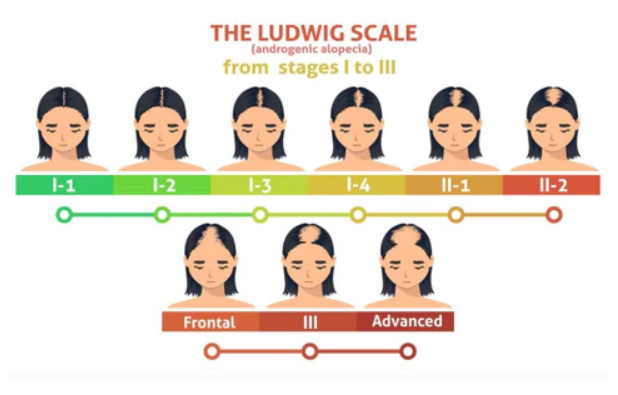
What causes female hair loss
Female hair loss, also known as female pattern hair loss or androgenetic alopecia, is a common condition that affects many women. Whilst the exact causes of female hair loss are unknown, there are several possible causes of female hair loss, including:
- Hormonal changes: Hormonal imbalances can cause hair loss in women. Changes in oestrogen and androgen levels, particularly an excess of androgens, can lead to hair thinning and baldness.
- Genetics: Hair loss can be hereditary and passed down through families. Women with a family history of hair loss are more likely to experience hair loss themselves.
- Medical conditions: Certain medical conditions such as thyroid disorders, anaemia, autoimmune diseases, and polycystic ovary syndrome (PCOS) can cause hair loss in women.
- Stress: Physical or emotional stress can cause temporary hair loss in women, a condition known as telogen effluvium.
- Hairstyles and treatments: Hairstyles that pull on the hair, such as tight braids or ponytails, and treatments such as frequent use of hot tools or harsh chemicals can cause hair loss over time.
- Aging: As women age, their hair naturally thins and becomes less dense.
Understanding the underlying cause of hair loss is important for developing an effective treatment plan. Women experiencing hair loss should consult with a medical professional to determine the cause and explore available treatment options.
Why choose us for a female hair transplant
There are several reasons to choose Harley Street Hair Transplant Liverpool for your female hair transplant needs. Firstly, we have a team of experienced and qualified hair transplant surgeons specialising female hair restoration. Our surgeons have the knowledge and expertise to design a personalised treatment plan that meets your unique needs and goals, ensuring the best possible outcome.
Secondly, we use the latest technology and techniques for female hair transplants, including Follicular Unit Extraction (FUE) and Follicular Unit Transplantation (FUT). These techniques are minimally invasive and leave minimal scarring, allowing you to achieve natural-looking results without the need for an extended recovery period.
We also understand the specific needs of women when it comes to hair restoration, including the importance of maintaining their natural hairline and avoiding the creation of an overly masculine hair pattern. Our surgeons take great care in designing a natural-looking hairline that complements your facial features and enhances your overall appearance.
Finally, we provide a supportive and compassionate environment for our patients, understanding that hair loss can be a sensitive and emotional issue. We take the time to listen to your concerns and provide guidance throughout the process, ensuring that you feel comfortable and confident in your decision to undergo a hair transplant with us.

